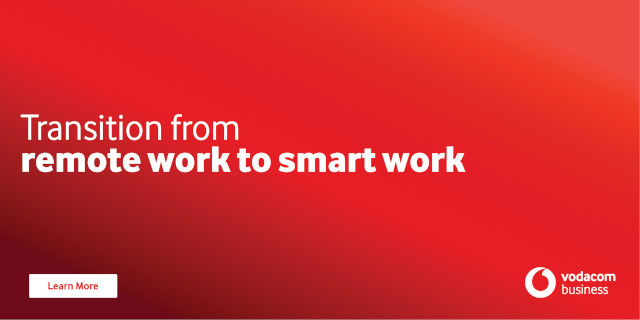Don’t import skills, grow them at home
By Industry Contributor 26 March 2024 | Categories: news
News sponsored by Vodacom Transformation of Work:
There is no doubt that South Africa faces a skills crisis, especially when it comes to digital knowledge that will revolutionise the world. Yet, sourcing international professionals to fill the local digital skills gap is not sustainable in the long run, writes Ursula Fear, Salesforce senior talent programme manager.
The list of critical skills South Africa needs to fill is long, and just some of those include skill sets in engineering, physics, chemistry, geology, and veterinary science. The list of 142 desperately needed talents also highlights the need for filling positions for Chief Information Officers (CIOs), call centre managers, IT systems analysts, data scientists, software developers, and programmer analysts, among other Information and Communication Technology (ICT) roles.
The catalogue of needed talent, published by the Department of Home Affairs in a gazette in October last year, has a common thread throughout: most of them require qualifications in the science, technology, engineering and mathematics (STEM) fields of study. The fact that there is demand for ICT skills is not in question. The first Career Junction Employment Insights Report for this year shows that the demand for IT professionals ranked third in terms of hiring activity, behind business management, and finance.
As a temporary solution to this impasse, President Cyril Ramaphosa suggested in the State of the Nation (SONA) address that highly skilled professionals are required to be brought into the country. Ramaphosa also indicated that the country's labour supply "does not match demand" from companies looking to employ "management-level personnel" and other professionals like engineers and science and maths educators.
Youth unemployment is currently at 51.52% in South Africa, according to the Quarterly Labour Force Survey 2023. The youth remain vulnerable in the labour market however, the third quarter of 2023 results show that the total number of unemployed youth (aged 15–34 years) decreased by 174 000 to 4,6 million, while there was an increase of 237 000 in the number of employed youth to 6,0 million.
A new training approach
The resolution to address youth unemployment and the skills crisis lies in how we train youth before they enter the workplace. Professional ICT certifications are not enough to meet the rate of change needed in the workplace. As a result, companies that hire young people with real life practical skills enables young people to be applicable and relevant with the appropriate digital skills.
The 2022 JCSE-IITPSA ICT Skills Survey, the latest available, noted that, in 2019, there were many stakeholder groups implementing solid skills development initiatives to improve the capability and employability of young people. However, the report said, only hundreds of candidates benefited instead of the thousands that need to go through these programmes.
Future demands
In the ICT sector, our biggest focus must be on the talent that South Africa urgently requires. Collectiv X published a list of demand-led digital skills which includes AI engineers, data scientists, automation engineers, cloud engineers, and big data developers to name a few. This information is confirmed by the 2022 JCSE-IITPSA ICT Skills Survey, which lists similar jobs for the sector but also includes a need for cyber security, artificial intelligence (AI) specialists, forensic investigators, and app developers.
While we need AI specialists to help solve local technology challenges, we need to ensure that these specialists are empowered to implement rapidly, monitor, and ensure best security practices when it comes to AI. The world is moving towards one in which AI will be pervasively integrated into business systems and processes. With that comes an increased risk of cyber-attacks, and the future will require knowledgeable IT professionals who can implement solutions, especially if South Africa is to be globally competitive.
Yet, Salesforce research has indicated that more than 60% of full-time desk workers do not have the skills to use generative AI technology – even though most of them are convinced this knowledge will advance their careers. As a result, training the next generation, as well as reskilling the current generation when it comes to AI, is a key component of the tech revolution.
We need to act urgently to mitigate the fact that we don’t want to have too many certified yet unemployable young people entering the workforce. Importing talent is not a long-term solution and we cannot extend the contracts of those who enter the country to fix the problem now. We need to upskill locally and ensure that we have the talent to take the vital technology sector, which contributes about 8% to the economy, to the next level.
South Africa requires a mindset change, and the government cannot address the skills crisis alone. It requires collaboration and partnership from the business sector to form long-term solutions that tangibly address the existing digital skills gap by providing youth with hands-on experience. Education and tertiary certifications form a critical component of empowering our current and future ICT workforce, but what is truly needed is the provision of hands-on experience and mentorship to sustainably develop leaders and entrepreneurs of the future and grow the South African economy.
Most Read Articles

Have Your Say
What new tech or developments are you most anticipating this year?




